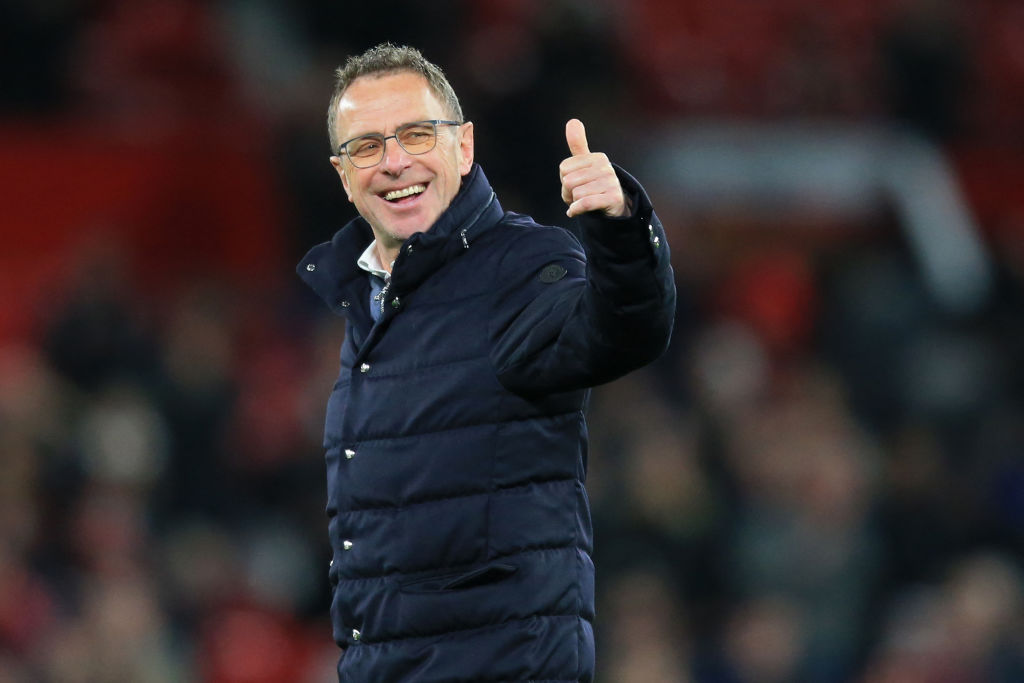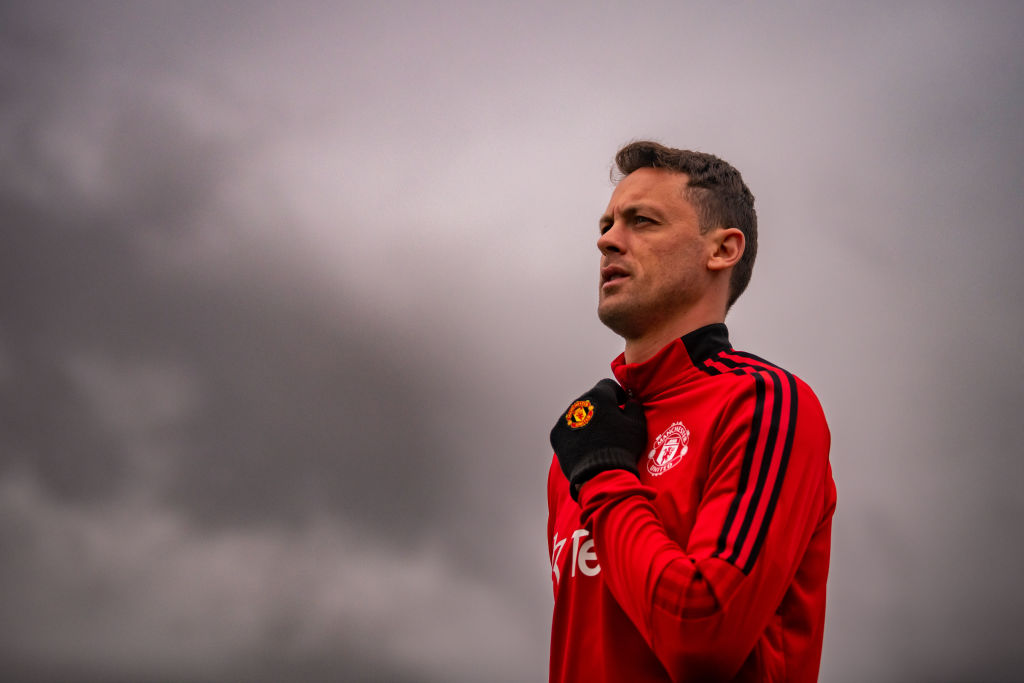
’s interim manager has dismissed talk suggesting there is a bad atmosphere in the Old Trafford dressing room.
This follows an interview with Red Devils midfielder on talkSPORT, who said: ‘As you know we are not in the best position in the league and the atmosphere is not fantastic, but we have to stay positive and believe until the end because we want to finish in that top-four.’
There have been plenty of rumours speculating that all is not well in the United camp with players allegedly falling out with each other following their exit at the hands of Atletico Madrid last month.
But Rangnick, speaking in an interview with Sky Sports, rejected these claims, saying: ‘At times, the players or maybe even the people around them will put something out in the media. That’s normal, it’s not something unique for a club like Manchester United.
‘I think any manager would wish these things didn’t exist, but you have to be aware what information is true and what isn’t. I know the atmosphere in the dressing room between the players is good.
‘Obviously, when you lose a game like the one against Atletico, it’s not good. But the same will be true of [Sweden’s] Anthony Elanga and Victor Lindelof after they lost against Poland – that’s football.’

Rangnick will be hoping that the team can stay together for the important run-in, with United currently sixth in the table, four points off Arsenal in the top four despite having played a game more than the Gunners.
Every game has now become must-win and the Red Devils will be hoping to claim all three points when they host Leicester City tonight.
The German, who will be moving into an advisory role at United at the end of the season, also spoke about the way he has to manage players’ game-time to ensure everyone in the squad feels valued by the squad.
He added: ‘Until Christmas, the size of the squad was too big and when you can only bring on three in every game, then you have some players who have almost no chance to get game time.
‘They naturally won’t feel like they are important in the squad, and that’s the most frustrating thing that can happen.
‘But if you look at the top teams in Europe, England and abroad, they have 20 outfield players on around the same level, who could easily expect to play.
‘If you are still competing in four competitions towards the end of a season, you need those 18, 20 players, two for each position, and you can rotate, plan ahead for the next three or four games.’
, .
, and .



















